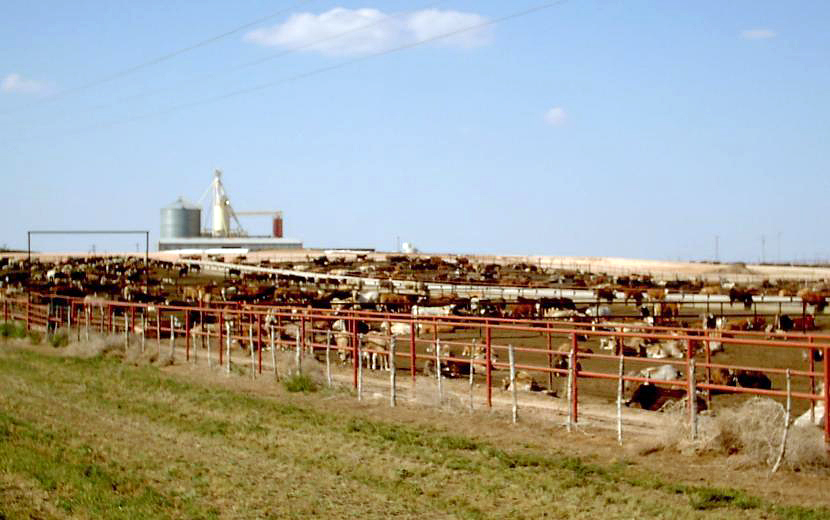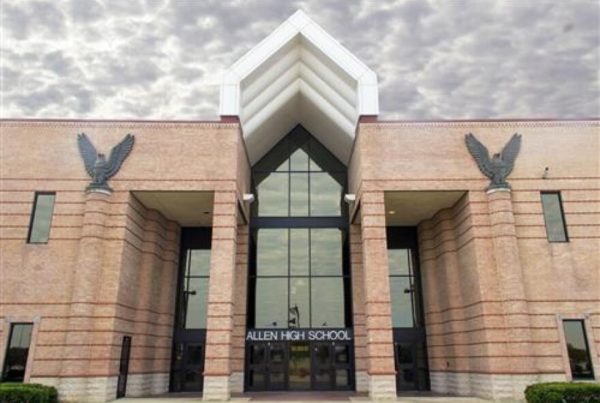President Joe Biden announced $1 billion in federal aid yesterday to improve competitiveness in the U.S. meat market, and lower costs for consumers.
It’s part of a broader push by the Biden administration to diffuse the power of the big four meatpacking companies, which control more than 80 percent of the domestic market.
Shelby Horn, a sixth-generation rancher from Fredericksburg, is also a member of the board of directors of the Texas and Southwestern Cattle Raisers Association. He told Texas Standard that he’s glad the government is working on the issue, but he hopes any reforms won’t disrupt the meat supply chain.
Texas Standard: What’s your general reaction to the plan that we heard from the White House yesterday to improve competition in the meat industry?
Shelby Horn: Well, while we’re thankful that the government is looking at these important issues that farmers and ranchers face, we’re a little bit cautious and don’t really know the details of what else being proposed. But we’re thankful that there’s been some attention put on the issue.
From what you are hearing about it – jumpstarting smaller operations, providing job training, lower labor and inspection costs – will that give you more of a margin to make ends meet or how do you see it?
Packing capacity is an issue in our country. Regional packing, and increasing packing capacity will certainly help alleviate some of the problems that have caused this rise in beef prices and constriction at the level of getting our cattle processed.
Do you think that the administration could be or should be more aggressive in trying to deal with the fact that the four biggest meatpacking companies control more than 70% of the domestic market?
Yeah, that’s correct. Actually, over 80%. We ought to be looking at some of these issues, that we have some price discovery issues in our business and we have some transparency issues. And as far as being more aggressive, I guess we’re a little bit concerned that we don’t disrupt the very efficient system that we’ve grown and maintained here in our business. And so again, we really need to see the details of what’s being proposed. There needs to be some changes in our business. The farmers and ranchers have faced some issues for a long time, but as far as how aggressive, I think it depends on what we’re doing and it’s a balancing act.
You talked about transparency and you want to maintain the system for the sake of efficiencies. But there have been some farmers who say the government should be looking at busting up trusts here. Is that the way that you see it or what do you think?
I don’t think that the government ought to be looking at busting up the packers or busting up a trust. I do think we ought to be looking at increasing some smaller regional packers that can provide more competition in the fed cattle market. But as far as busting up what we’ve got, I think that might be going a little bit too far.
What role has a pandemic played in getting these issues onto the agenda of policymakers? They’re paying attention now. It seems. At least the Biden administration is.
We’ve been dealing with these issues for a long time, but the pandemic has shined a bright light on the problems and really attracted some of the attention that we’ve needed for a while.
As you talked to other cattle raisers, what are they telling you? What’s the general mindset? Can they stay in business given the way things are?
2021 will be the fourth largest year of beef cow slaughter in the last twenty two years. So what that tells you is that beef producers are struggling, they’re not making a profit, and so they’re selling their cows. Some of that is drought-related, but not all of it. And a lot of it is is, beef producers simply can’t make it. And at a time where we have all-time historic beef demand, so there is a problem in getting this beef demand signal back to the producer. And so that has certainly shone a bright light on what we’re experiencing today.














